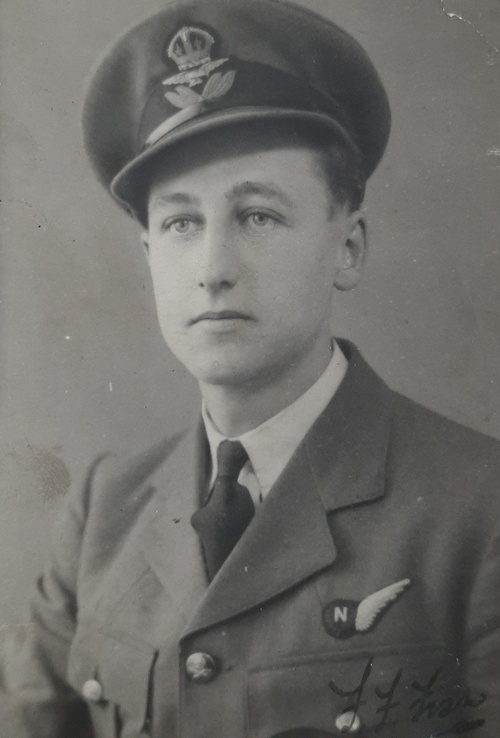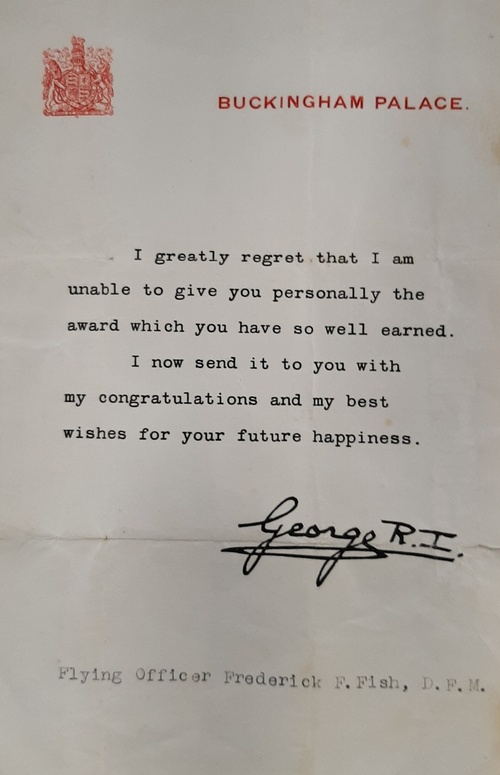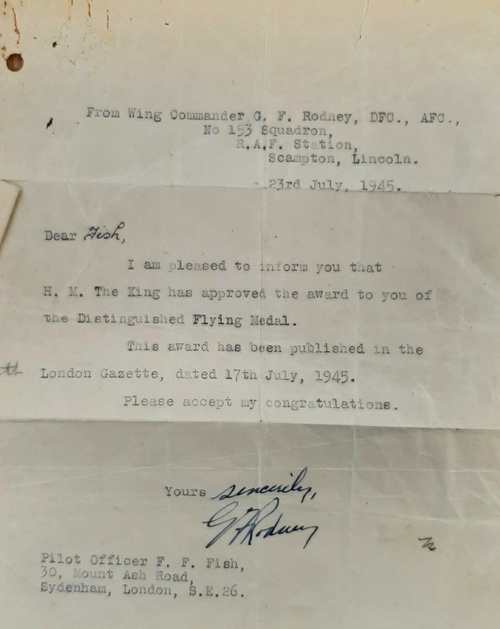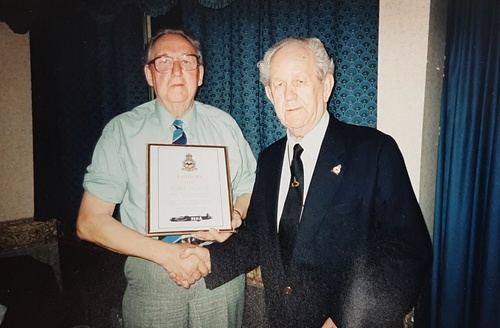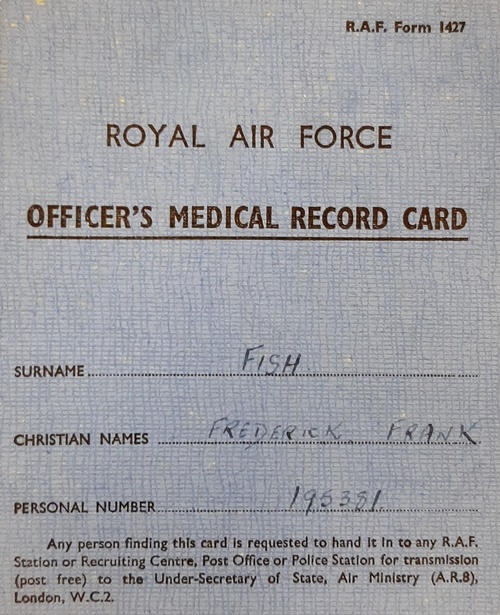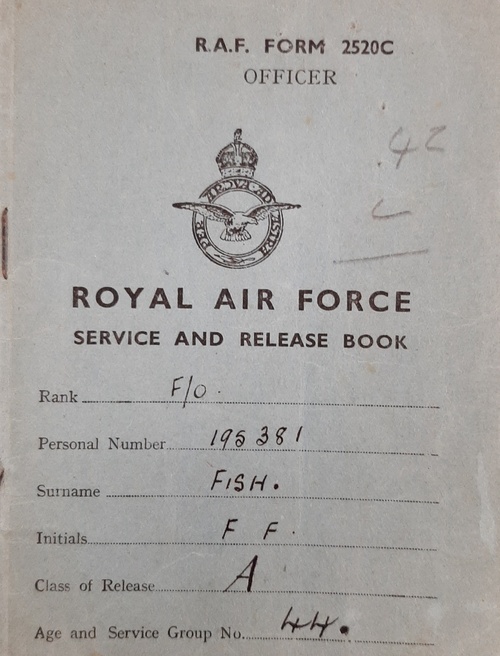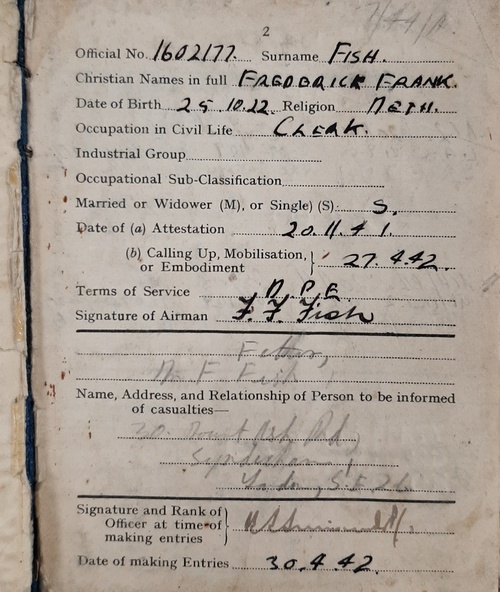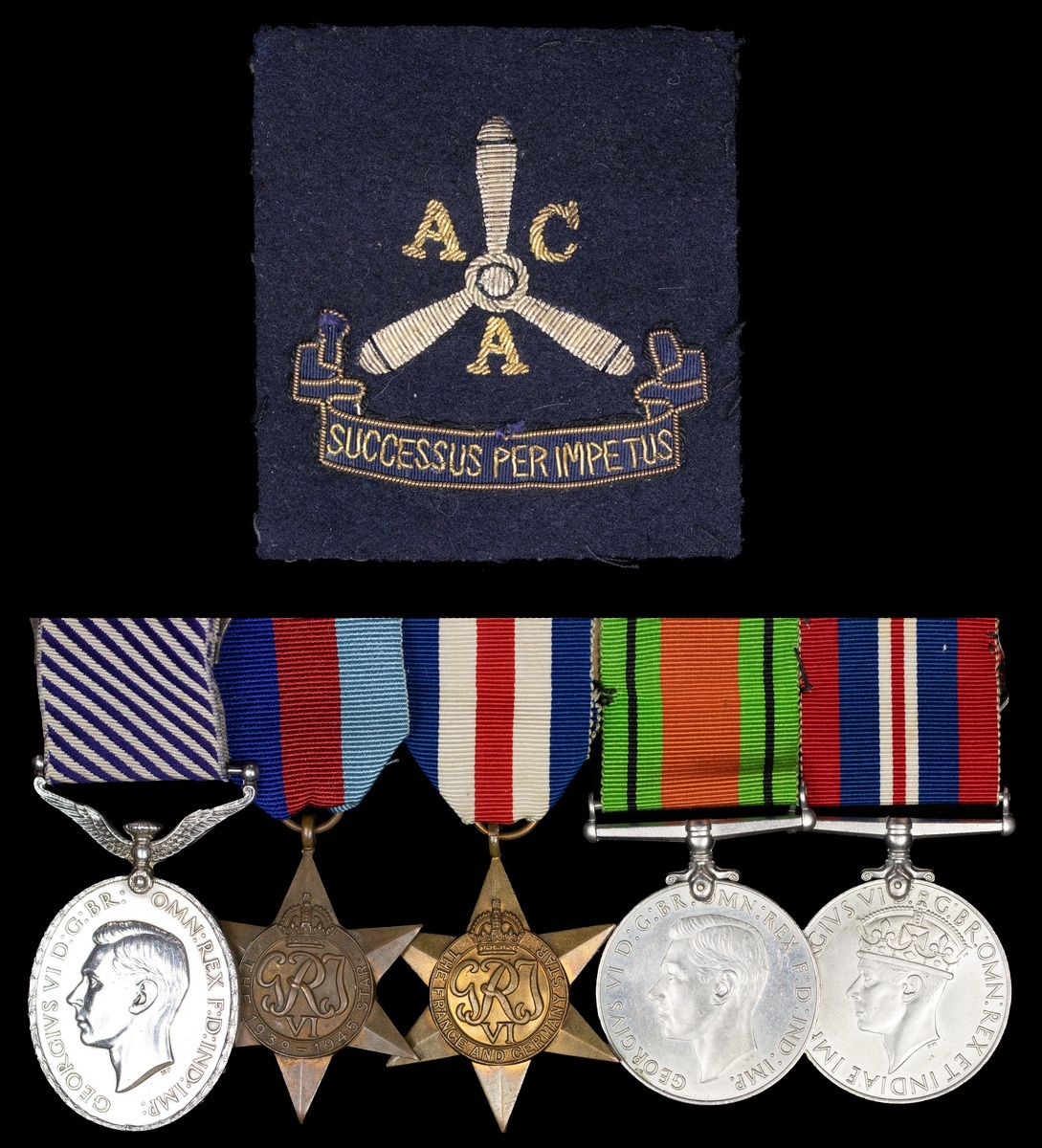Auction: 25111 - Orders, Decorations and Medals - e-Auction
Lot: 721
The Second World War D.F.M. group of five awarded to Flight Sergeant F. F. Fish, No. 153 Squadron, Royal Air Force
Distinguished Flying Medal, G.VI.R. (1602177 F/Sgt. F. F. Fish. R.A.F.); 1939-45 Star; France and Germany Star; Defence and War Medals 1939-45, the first mounted as worn, light pitting, overall very fine (5)
D.F.M. London Gazette 17 July 1945, the original citation states:
'This young N.C.O. Navigator has completed 28 successful sorties against such enemy targets as the Synthetic Oil Plant near Merseburg, Ulm, Nuremberg and Munich. His work has been characterised by an unfailing sense of devotion to duty and determination to play his part, enabling his aircraft to reach its target and bomb it through any opposition. Calm and confident in his manner, he is cheerful and a magnificent example to his crew and the whole squadron. His high standard of courage, great determination and outstanding devotion to duty well merit the award of the Distinguished Flying Medal.'
Frederick Frank Fish was born at Sydenham, London on 25 October 1922, attesting with the Royal Air Force on 20 November 1941 he was mobilised on 27 April 1942. After training he was posted to the newly reformed 153 Squadron based in Lincolnshire.
The unit was equipped with Avro Lancasters and Fish flew his first mission as a navigator with them on 14 October 1944 to Duisberg, the first 1,000 bombers Daylight Raid codenamed Operation Hurricane. He flew four more missions that month, one to Essen and three to Cologne with the last proving extremely eventful.
Fish had a near miss on 31 October 1944 on approach to Cologne when their aircraft suddenly heeled over starboard. It was assumed that they had been clipped by a flak burst but Flying Officer 'Whizz' Wheeler got them back under control and the managed to get through and drop their bombs. In fact a stick of bombs dropped by the a Lancaster above them had struck the wing:
'It was shortly after leaving the target that the Flight Engineer noticed a large hole in the starboard wing! After a brief exchange of four letter words, the W/Op (who usually, when over the target stood in the astrodome, looking upwards, to act as look out against over-flying aircraft) was asked why the 888 he had not shouted a warning? His reply was memorable and accurate "I was too paralysed to speak". Clearly the sigh of a stick of bombs hurtling towards one would be enough to petrify anyone. He went o to say that the had hoped the bombs would miss them- but one did not. Although the starboard aileron was ineffective, and other problems had to be mastered, Whizz nursed the crippled aircraft back to make a good landing at Scampton. Later examination revealed a jagged hole. About three feat square, virtually through the roundel. About two inches away was the pink outline of the outboard petrol thank and the main spar. Fortunately the bomb had not reached its "explode on impact" point, so that damage was limited to that caused by a solid, inert 1,000lb mass weight going through the one part of the wing it could do, without fatal consequences. A close shave indeed. 18 days later, "A" was back on operations.'
This was not to be his last close shave with Fish's diary for the next mission over Dusseldorf on 2 November noting 'Bags of Fighters & S.L.' and just two days later 'attacked by FW190- Hit in S. Wing'. That month saw further aerial combats with Fish's entry for 18 November over Wanne-Eickel stating: fired on me410 - Did a corkscrew- all engines cut temporarily'.
The Squadron was not just undertaking bombing raids against German cities, they also undertook air support missions with one occurring in support of French trips over Freiburg on 27 November. As the year wound down they undertook several minelaying missions, including one abortive mission over Kattegat on 26 January which saw one Lanc shot down by a fighter and 3 others downed by flak.
Fish's final mission saw him downed on 30 January 1945, several direct hits saw them forced to land at Eindhoven, Holland. He returned to Britian by Dakota, it was his final combat mission.
He remained in service after the war and married Aircraftwoman Class I Alice Harden of Boston, Lincolnshire on 1 January 1949. Fish joined the Squadron association in 1986 having worked as a Chartered Accountant at Newquay, Cornwall after leaving the R.A.F. He died on 19 May 2003 in Bexhill.
Sold together with copied research and an original archive comprising:
i)
An annotated portrait photograph of the recipient.
ii)
Named Buckingham Palace slip of issue and letter of congratulations from the recipient's C.O.
iii)
Boxes of issue for both the D.F.M. and campaign awards with the original envelope.
iv)
A.C.A. cloth Shoulder Patch.
v)
Officer's Medical Record Card and Vaccination card.
vi)
Airman's Service and Pay Book along with his Service and Release Book.
vii)
A private diary containing, addresses, pay details and details of all the missions the recipient undertook, with notes on the action that took place.
viii)
A handwritten letter from the recipient's next of kin to the original purchaser of the group giving details of his later life and retirement.
Subject to 20% VAT on Buyer’s Premium. For more information please view Terms and Conditions for Buyers.
Sold for
£2,100
Starting price
£950


